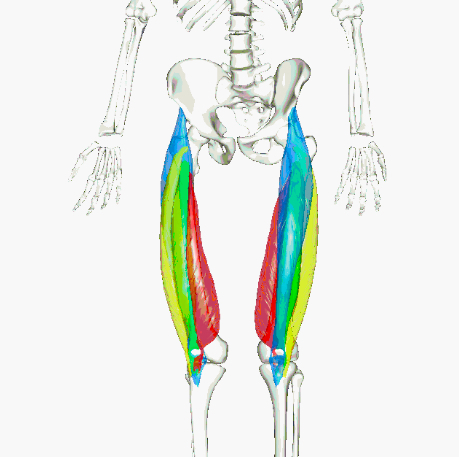Spring Training: Strength Train for Knee Pain

I have knee issues like about everyone else I know. In fact, "about 60 million Americans have knee osteoarthritis and this number will increase by 50% over the next decade," according to The Journal of Injury, Function, and Rehabilitation. I started feeling little twinges by my early 30's. Perhaps being a gymnast and a dancer growing up led to early symptoms. No matter, working with physical therapists and trainers over the years averted any serious pain - until recently.
Three years ago, a torn meniscus required arthroscopic surgery, but my knee pain is back. After some research, I found a review of studies in the journal, BMC Musculoskeletal Disorders, and I learned that certain knee arthroscopic surgery is controversial because apparently, it can hasten knee degeneration. That can lead to the need for knee replacement within just a couple of years. So I can't help wondering: Should I have undergone the arthroscopic surgery to begin with? There are really no answers. And I can't look back now.

But I'm feeling hopeful these days. Lots of interesting research is showing that exercising certain muscles with heavier weights, fewer repetitions (meaning you exhaust your muscle within 8 to 12 reps) can successfully decrease pain while increasing function, and that includes longer and stronger walking.
I'm especially convinced about these recommendations because a body of evidence is building that "power training" with heavy weights is most effective at building muscle in older people. That's because it improves the functioning of the nerves that power muscle, according to a study conducted by the Norwegian University of Science and Technology. The degradation of these nerves is a major cause of muscle impairment in older people, causing disability and loss of independence.
"Improvements in symptoms and function are directly related to exercise intensity and that higher intensity (if maintained over time) would sustain muscle strength and preserve functional abilities," according to the knee arthritis study. The study continued to state that even with more severe knee arthritis, intense strength training enhances postoperative recovery if knee replacement is necessary.

Quadricep strength is particularly important.
To that end, I'm working with a physical therapist and trainer (periodically), and have invested in (used) weight machines (Craig's list). I'm exercise biking, and do mat pilates from a YouTube video. It's amazing how much more easily - and with significantly less pain - I can walk after I exercise.
I urge you to do the same!
